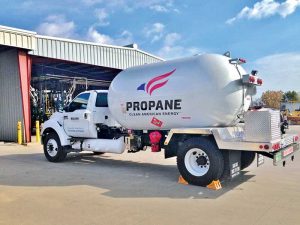Autogas weathers the winter
Propane retailers nationwide welcomed this heating season’s extended cold snaps after suffering through unseasonably warm winters the last two years.
But persistent bitter temperatures, snow and ice strained the industry’s distribution systems, pressing crews to keep up with backlogged deliveries. The challenges worsened when the extreme weather sidelined many delivery and service vehicles.
In 2007, all conventional and alternative fuel engine and emissions technologies were forced to undergo dramatic changes to comply with tightened clean air standards. They significantly cut tailpipe emissions and reduced our nation’s consumption of conventional petroleum-based fuels. But the increased complexity of today’s diesel engines and emissions systems created new performance challenges for diesel-powered vehicles.
Let’s start with some well-known and documented facts:
⦁ Today’s diesel engines simply do not perform well in winter and, depending on the outside temperatures, may not perform at all.
⦁ Diesel engines require engine block heaters, which can significantly increase electric costs, and are reliable only if drivers remember to plug them in each night.
⦁ Diesel engines require the added expense of fuel conditioners to perform in the cold.
⦁ Diesel engines with selective catalytic reduction systems require diesel emission fluid (DEF) that drivers must monitor during operation.
⦁ Fleets that rely primarily on diesel-powered vehicles are experiencing more downtime, increased maintenance and repair bills, and lost profits.
Unlike legacy engines that could idle unrestricted for 24 hours a day, today’s diesels have maximum idle periods of five minutes. Excessive idling increases emissions regeneration frequency and can create problems that can render a vehicle inoperable. Failure to regenerate emissions as required will clog the diesel particulate filter, de-rate the engine RPMs and eventually render a vehicle inoperable and awaiting an expensive tow to the closest garage or dealership. And those are only the most common challenges with today’s diesel engines.
I frequently remind marketers of a proven, reliable, sustainable and affordable motor fuel that eliminates these headaches. Propane vehicles crank reliably, warm up fast and have no engine idle restrictions. And they are enhancing profits for fleets.
About 2,100 OEM propane-autogas-powered bobtails, plus an unknown number of aftermarket conversions, are on the job nationwide. That’s about 10 percent of the industry’s delivery fleet using propane to deliver its own fuel.
Numerous OEM and certified aftermarket propane fuel systems are available to meet propane delivery and service needs today. The Propane Education & Research Council has partnered with Roush CleanTech, Freightliner Custom Chassis, Isuzu, Icom North America, Blossman Services and others to develop, certify and commercialize dedicated and bi-fuel propane autogas fuel systems.
▶ Buses vs. Bobtails
Diesel has created the same performance, reliability and expense issues for school bus fleets, which have similar routing traits as our bobtails.
Much like the propane industry, school transportation is a traditional market that is heavily reliant on diesel engines and resistant to change. Yet there are 14,000 propane school buses in 830 school districts across the country. Why are so many school districts switching to propane autogas as their primary fleet fuel?
Schools and private contractors have discovered the value of analyzing a vehicle’s total cost of ownership. They compare the three Fs – the lifetime costs for fuel, fluids and filters – to determine the baseline maintenance and repair costs for their fleets. These life cycle costs are significantly less for cleaner-burning propane autogas.
Propane autogas vehicles have no restrictions for idling, no emissions regenerations requirement, no need for engine block heaters, no fuel conditioners, no DEF and the list goes on. Plus, technicians love that the engines are easy to access for maintenance and repairs, and drivers appreciate not wearing the diesel odor while on their routes or when they go home.
Mike Taylor is director of autogas business development at the Propane Education & Research Council. Contact him at 859-409-1439 or michael.taylor@propane.com.

















